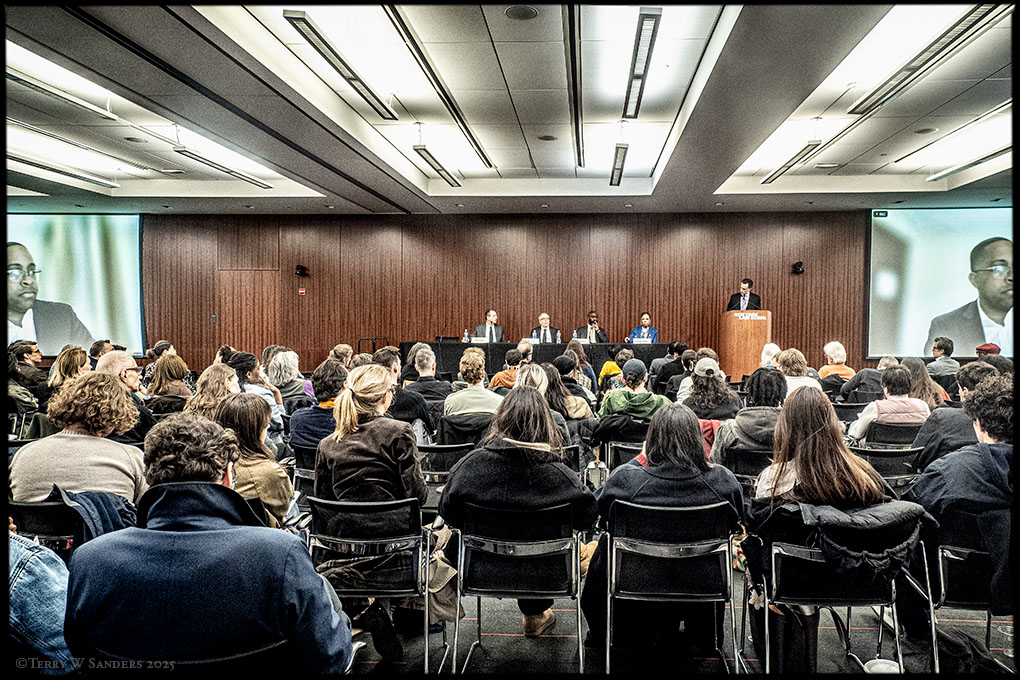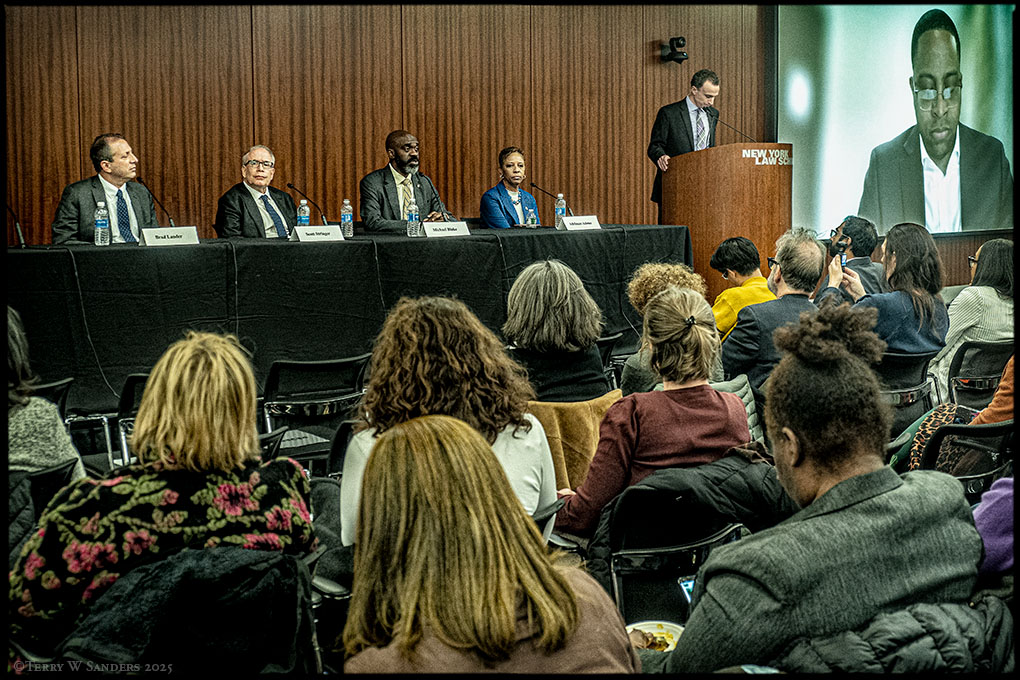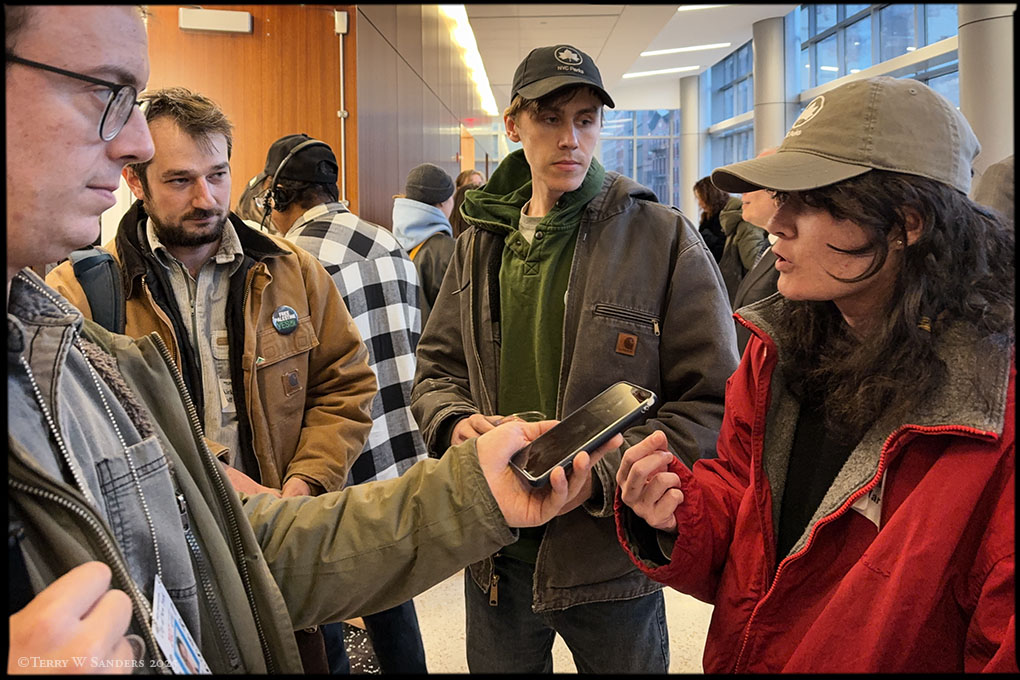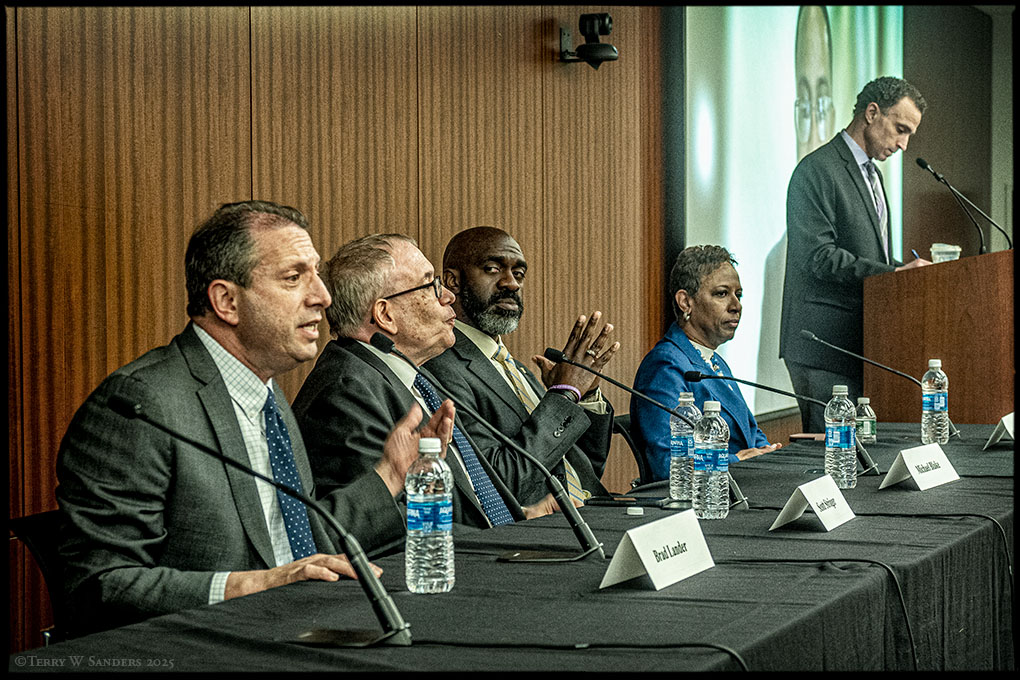On Tuesday night, candidates in the Democratic primary for mayor took part in a town hall event at New York Law School on the topic of parks, recreation, and open space. City Comptroller Brad Lander and his predecessor Scott Stringer were in attendance, as were City Council Speaker Adrienne Adams and former Bronx State Assemblymember Michael Blake. State Senator Zellnor Myrie and Assemblymember Zohran Mamdani also participated remotely through a video call. Notably absent was the polling front-runner in the race so far, former governor Andrew Cuomo, who has limited his public appearances since announcing his campaign less than two months ago. Some candidates in attendance on Tuesday laid much blame at the feet of incumbent Mayor Adams, who announced last week that he is running as an Independent after a long political career as a Democrat.
The Parks Department has been getting short shrift from city government for a long time. Back when he was a candidate, Mayor Eric Adams vowed to devote at least 1% of the city’s budget to the consistently underfunded Parks Department. That promise has not materialized, with parks funding making up just 0.55% of city spending as of January, the lowest share of the budget in a decade. The Parks Department took a cut of $20 million in last year’s budget, eliminating 786 full-time vacancies that needed to be filled. While it may difficult to immediately discern the harm in cutting parks staff, the consequences can be serious: firefighters were stymied by overgrown trails and falling limbs from unpruned trees when trying put out numerous wildfires that broke out last November.

The question of how to reclaim the Parks Department’s workforce and funding was front and center throughout. Adrienne Adams defined herself as an advocate for parks funding in the Council, but that she and other legislators “have not had a partner in the administration that will do that.” She took aim at Mayor Adams’ use of PEGs – Program to Eliminate the Gap, a cost-saving budgetary mechanism – which led to the elimination of the positions in the Parks Department, calling the maneuver a “snow job.” The Independent Budget Office has backed up her claim, stating in a report from February 2024 that “such headcount PEGs are potentially concerning given the staffing and service concerns.”
Zohran Mamdani took aim at the incumbent mayor as well, criticizing his “legacy of austerity” and proposing dedicated funding streams for the Parks Department that would shield it from cuts in budget negotiations. “I think there are interesting suggestions when it comes to possibility of adding a community park surcharge to the RPTT,” he said, citing the city’s tax on real estate transfers and sales.
Michael Blake leaned broadly on his record during the COVID crisis and his work with nonprofits as examples indicative of the tenacity he would bring to the issue. “If you want to figure out what I would do, assess what I was doing when it was difficult,” the former Obama staffer said. “That’s how you’ll know what I’ll do as mayor.”

Zellnor Myrie went a similar route, pointing to his successful advocacy for preventing the closure of SUNY Downstate hospital and preventing job cuts at the Brooklyn Museum. “I would urge people to look at my record of fighting for working-class New Yorkers,” Myrie said. “That is the best indication of what I’m gonna do as the next mayor.”
Scott Stringer joined in on the Adams critique, calling the incumbent’s approach to fiscal responsibility that led to the cuts in Parks funding “very dumb.” Instead of the mayor’s broad cuts, Stringer argued for a stitch-in-time-saves-nine approach to budgeting that would shrink the “extraordinary amount of money on claims” paid out by the city to people due to, among other things, limbs falling on them from unpruned trees, “some with very dire consequences.” The former comptroller said it would make more fiscal sense to prevent such city-related accidents and subsequent claims with dedicated staff across the board, and the Parks Department was no exception.
Brad Lander pointed to his plans on budget and civil service reform, both of which he admits are “in the weeds” in terms of policy. The latter would include changes to “decades-old tests” for applicants that he would seek to modernize in order to attract candidates. He urged these changes in the face of “hard times” ahead due to Trump’s tariffs and budget cuts, and the possibility of an economic recession. “You need a mayor who knows how to make the budget work and get everything we can out of the workforce that we have.”

Parks workers in attendance appreciated the general sentiment of support, but were skeptical of policies that might take resources away from the Department. “I like the idea for more in-house crews for block pruning instead of contracting it out,” said Evon Magnussen, who’s been with the Parks Department for four years. “Chicago does that all in-house.” They also took note when candidates got granular with their proposals. “I like the idea for funding the parks through the real estate transfer tax,” said Isaac Kirk Davidoff, a five-year veteran of the Department. “Anytime they said ‘partner with private industry,’ I didn’t really get that,” he added. Both Stringer and Blake briefly expressed support for such initiatives without offering much detail. “We need more funding for public jobs, those are the good jobs in New York.”












